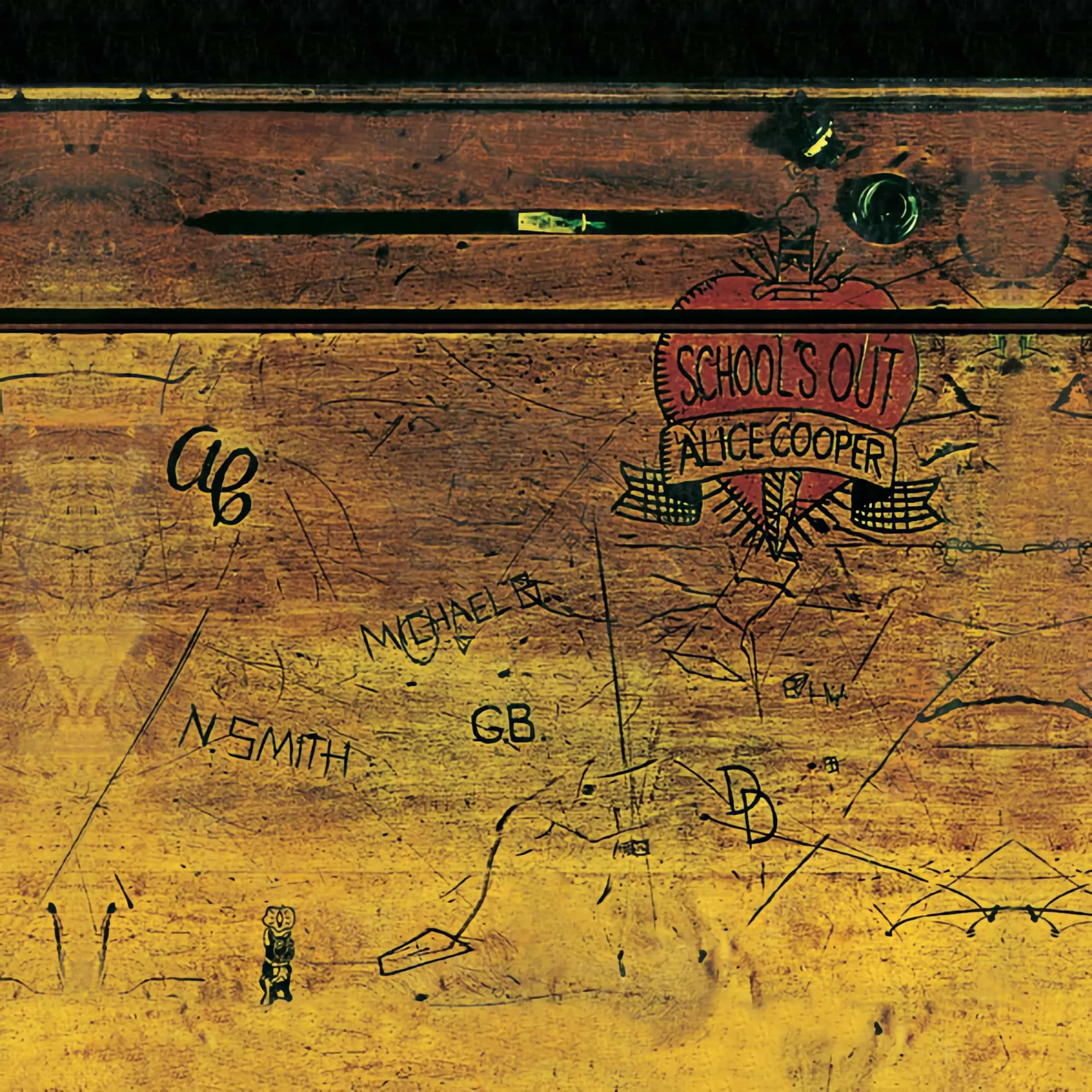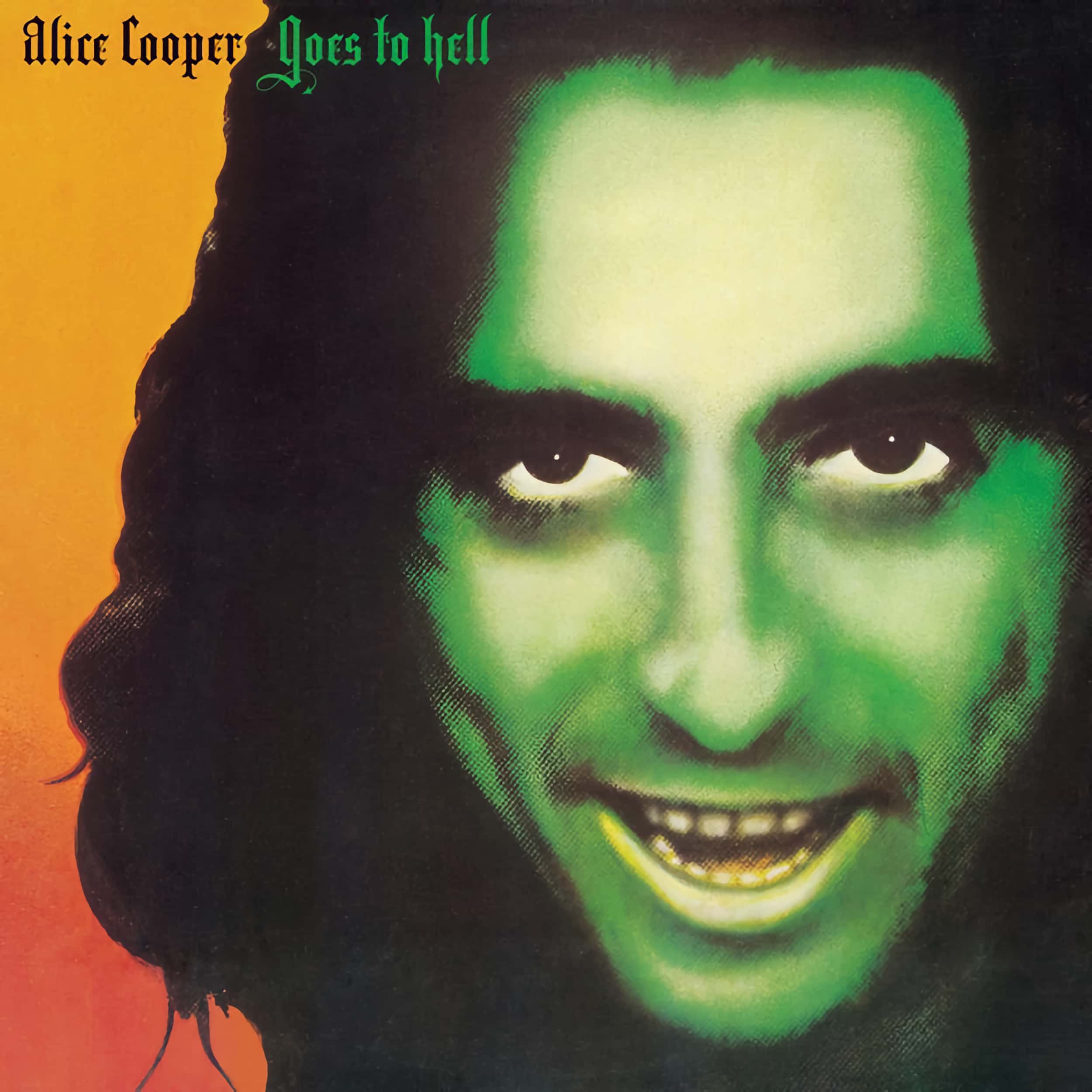School’s Out isn’t quite Killer, nor is it Billion Dollar Babies. Still, this 1972 release, the Alice Cooper band’s fifth studio record, is a culmination of everything that came before and a precursor to the incredible music that was on the horizon. Most importantly, however, School’s Out has its own unique qualities that separate it from the other albums in Alice Cooper’s discography, as the combination of glam and hard rock culminated in one of the most rewarding Alice Cooper experiences one can enjoy.
Regular readers may note that I’ve only ranked School’s Out as Alice Cooper’s 15th best studio album, on the Alice Cooper: Albums Ranked (From Worst To Best) list, yet that shouldn’t be seen as a negative aspect, for the only reason it’s ranked in that position is because 14 other Alice Cooper releases are, subjectively, better. It’s a good problem to have, however, as there can never be too much Alice Cooper and with 30 albums to choose from, we’re incredibly fortunate to have such a wealth of incredible music.
It isn’t only the music, though, as the album’s artwork is legendary. That is, if you’re not listening via streaming services. No matter how technologically advanced streaming services are, the original school desk packaging cannot be replicated. While a CD release has the potential to offer a smaller facsimile of the original artwork, School’s Out is most certainly of its era, and the larger vinyl canvas is the perfect size, thereby allowing the faux desk design to open, revealing the inside of the school desk in the way one might expect. It’s an experience that really needs to be presented in its original intent, panties and all. Yes, dear reader, a pair of panties was included for music lovers to wrap around their record, like a sleeve.
Of course, some don’t care for physical presentations, and I can certainly attest to some of these intriguingly intricate designs being more trouble than their worth, especially as it pertains to easy and fast access to the record. So, for those who wish to simply get the party started, you can’t go wrong with the lossless Apple Music stream, but which edition should you choose?
Thankfully, common sense has prevailed, and rather than completely replacing the prior CD mastering, from 2004, it was kept alongside the 2023 remaster; a version of the album that simply doesn’t sound right. Granted, I’ve been listening to the older mastering for decades, but in providing a bolder presentation in both the low and midrange, the sparkle of the recording has been lost in this most recent remastering.
While it could be suggested that the 2023 remaster brings the album up to modern-day standards, the bigger problem (unrelated to this release) is the absence of tone controls on modern stereo systems. No, I’m not talking about EQ settings, for that is a different beast entirely, but bass and treble dials that once adorned every piece of stereo equipment and would allow the listener to dial the sound to their preferred tonal preferences. These days, more than ever, mastering engineers need to appeal to the masses. While EQ settings, especially ones that offer full control, rather than a set of presets, are incredibly useful, sometimes adjusting the bass up a notch and the treble down by one can achieve the desired result. In many respects, while I can appreciate the 2023 remaster, I dare say that an adjustment to one’s tone controls (or EQ) would yield a similar result and would be fully customisable to an individual’s taste (artistic intent, be damned).
All that said, I do prefer the rawness of the earlier digital reissue as I find it aligns well with the band’s raw production qualities. So, with that in mind, take a listen as we explore the songs that make up this timeless masterpiece.
School's Out is synonymous with Alice Cooper, and while it’s not the greatest song from the band (or Alice himself), it has a rebellious quality about it that all of us, regardless of age, can appreciate. In essence, “School’s Out” is a timeless tale that talks to the human need for freedom from that which is required of us. Add to that the legendary glam rock styling, and there’s little wonder as to why this has remained a fan favourite and a mainstay of Cooper’s live performances.
Luney Tune shifts to a more sombre tone, but that isn’t a detraction, as Luney Tune is a darker, yet fun, song that is Alice Cooper 101. No, it was never going to be a standout, but as an album-only song, Luney Tune is a wondrous addition as it adds a sense of theatricality to the record.
Gutter Cat vs. The Jets is, without a doubt, the coolest song from School’s Out. Not only is it showcasing Alice Cooper’s extended and more elaborate styling, in a similar manner to “Black Juju”, but it’s perfectly suited to the era, so much so that it wouldn’t be completely out of left field to suggest that this is a song one may have expected from Elton John. However, it is the overall quirkiness that adds another level of intrigue for it’s akin to a memorable vaudeville carnival-style performance; one that will keep you coming back for more.
Street Fight flows seamlessly from “Gutter Cat vs. The Jets”, but it isn’t really a song. A palette cleanser, perhaps, but as a musical interlude, it’s ideally sequenced.
Blue Turk is a killer tune with a bluesy feel that will appeal to just about anyone interested in a multi-layered musical performance, one which features the legendary Wayne Andre on trombone. Overall, “Blue Turk” is a compositional wonder in and of itself, for the complexity and entire musical performance is extraordinarily compelling.
My Stars is a gorgeous tune and is one that would influence many musicians in the subsequent decades. You can most certainly hear a possible influence of Glen Buxton’s guitar work on Slash’s career, particularly as it applies to his Guns N’ Roses recordings. Beyond that, the song’s melodic hooks captivate, making it an incredible piece of audible art and one of the best rock tunes from the 70s.
Public Animal #9 is an upbeat animal (pun intended). As a playful tune, you’ll find yourself toe-tapping and head-bopping along, and while it isn’t necessarily a standout, the gravelly vocal presence of Alice is utterly perfect on this tune.
Alma Mater has a beautiful introduction, and while the delicate musicality continues throughout, even when the song really gets going, “Alma Mater” is one of the most uniquely different tunes Alice Cooper has ever recorded. It’s reminiscent of The Beatles, and works well in that tip-of-the-hat context, but it’s equally not quite Alice Cooper. Nevertheless, it’s an exceptional song and is one of the best from the record.
Grande Finale is a musical masterpiece and the perfect closer for the record. Yes, it is earworm-inducing, but in the best way possible, as it’s a stunning instrumental composition and ends the album on a high note, bringing together many of the record’s themes in a layered and enveloping sonic presentation.
Few albums are as lauded as Alice Cooper’s School’s Out. In part, that is due to the spectacular original album artwork, for while it can be seen as somewhat of a novelty, it expands the album and offers a perfect counterpart to the music itself. Artwork aside, School’s Out is a raw recording that is perfectly aligned with Alice Cooper’s origins, yet in an interesting dichotomy, it’s well-produced with incredible songwriting and performances throughout. Ultimately, School’s Out is a quintessential album experience and is one of the greatest releases from the band.






